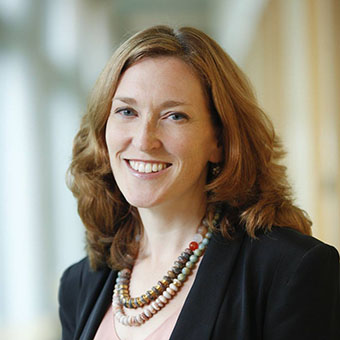Jill Greenlee studies ambition gap

Tell me about your research.
In part, we what we want to do is study the literature in political science on the ambition gap between men and women. Women are less likely to run for office, less likely to express interest in running for office, less interested in politics in general, and also exhibit lower levels of political knowledge than do men. People still have the perception that politics is a male domain. We want to see if children are beginning to express beliefs that politics is a man’s world, so we can begin to understand if these differences between men and women are emerging early in life, between boys and girls.
What’s the next step?At this stage of the research we’d just like to get baseline data on what children’s attitudes are regarding politics. After that, we hope to go into classrooms and do experimental studies which assess the effectiveness of teaching materials that promote inclusive images of politics. For example, we’d do something like teach a lesson which features women of color in the political field and then assess to see if that lesson shifts the kinds of responses we get from students in terms of thinking about the characteristics of political leaders, or their perceptions about how good they’d be at political leadership.
Who are you working with?My collaborators are all people who study gender and political psychology. The PI is named Angela Bos and she’s at The College of Wooster in Ohio. She put together two conferences on new research on gender and political psychology, and in doing so, she’s connected to a lot of people and stimulated many collaborations. My other colleagues are Mirya Holman and Celeste Lay, both from Tulane University in Louisiana, and Zoe Oxley of Union College in New York.
What is the best possible outcome of this project?
Panel data would be the best possible outcome, because panel data collection is very resource intensive. You have to keep track of people, and you have to expend significant resources to keep in touch with them. But right now for this project, we need resources to hire RAs because we need to be going into the classrooms and collect the data. We also need to code the survey responses, build the datasets, and produce reports for each school. All of these efforts require a team of committed undergraduate research assistants. I’ve already begun to build that team, but I hope with additional resources, I can bring in new students. It’s a really exciting research opportunity for them, and it pays!
Why does this work interest you?
I want to understand how children think. Early impressions of the political world are important to the development of a lifetime of political engagement. If some children get the impression that their political voice is not valuable – or that people who look like them can’t be political leaders – then we need to know this so that we can change that impression.